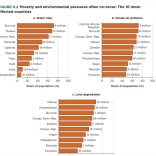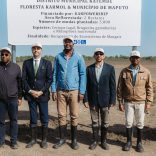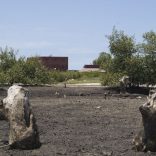World Bank urges fresh push on economic threat of pollution
Obsolete pesticides from Mozambique to be incinerated in UK

File photo: RM
By the end of this year, the Mozambican authorities hope to have collected for incineration about 300 tonnes of obsolete pesticides from across the country, under a project to dispose of these products that pose a danger to human and animal health and to the environment.
Since Mozambique does not yet have its own facilities for safely destroying the pesticides, they will be incinerated in Britain, by the company Veolia UK, which won the international tender launched by the Mozambican government.
The obsolete pesticides have been collected from farmers and from public and private enterprises, and are currently stored in Boane district, 30 kilometres west of Maputo, and in the central cities of Beira and Chimoio.
The project to collect and dispose of these dangerous chemicals was launched in 2012/13 and is budgeted at 3.5 million dollars. The money is provided by the Mozambican government together with the Global Environment Fund (GEF), with technical assistance from the United Nations Food and Agriculture Organisation (FAO).
The amount collected so far is far below the amount of obsolete pesticides known to exist in the country. Speaking to AIM in Boane, the project national coordinator, Khalib Cassam, said 15 sites have been identified with about 1,000 tonnes of pesticides including contaminated soils.
Cassam said another international tender will be launched to choose a company to treat contaminated soil. The project is also looking for partners who can help create a Mozambican capacity for eliminating obsolete pesticides and contaminated soils.
To deal with the 15 known contaminated sites, create local capacity for destroying these chemicals, prevent the future accumulation of pesticides, and to improve Mozambican legislation on the latter, among other interventions, will cost around ten million dollars, Cassam said.
He added that the project has already contributed to drawing up the regulations on pesticide management that are now in force. As a result, the Agriculture Ministry has acted to oblige those who use pesticides to follow the new rules, and has confiscated unregistered products.
Nonetheless, Cassam warned that many farmers are continuing to use pesticides in an incorrect way, without taking the due precautions, which poses a threat to the environment and to human health.












Leave a Reply
Be the First to Comment!
You must be logged in to post a comment.
You must be logged in to post a comment.